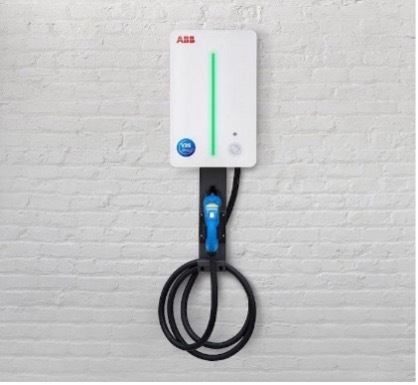Vehicle-to-grid

Against the social backdrop of ever-rising prices on the gas and electricity markets, the concept of the vehicle-to-grid deserves special attention. An energy transition is imminent, in which electric vehicles will play an increasingly important role, or at least: their batteries will.
Against the social backdrop of ever-rising prices on the gas and electricity markets, the concept of the vehicle-to-grid deserves special attention. An energy transition is imminent, in which electric vehicles will play an increasingly important role, or at least: their batteries will.
Against the social backdrop of ever-rising prices on the gas and electricity markets, the concept of the vehicle-to-grid deserves special attention. An energy transition is imminent, in which electric vehicles will play an increasingly important role, or at least: their batteries will. ABB follows the possibilities of this developing technology very closely and is one of the market leaders in this field.
What does vehicle-to-grid (V2G) mean?
Imagine what could happen if we would use our car batteries to store electricity? The technical concept is based on the idea of using the batteries in parked electric cars in both directions. It will offer flexibility to store electricity that is produced in excess on the network and constitute an electricity reserve to power the grid or a home network when needed.
Maximum advantage
Did you know a car battery has 10 times the capacity of a home battery? Making optimal use of that capacity means that we can better manage fluctuations on the electricity grid. V2G is one of the solutions that make it possible to take maximum advantage of the renewable electricity produced.
According to grid manager Elia, by 2040 there will be 900.000 to 2,5 million electric vehicles on the road in Belgium alone. However, all these cars would spend much more time at a charging station (slow or fast) than on the road. Together, these connected e-cars thus constitute an enormous reserve of electricity. The potential of the so-called storage on wheels is therefore huge.

The future for V2G
Should we all run to the car dealer at once? It is a little too early for that. However, we expect the number of bi-directional systems on the market to increase significantly in the coming years. This means that EV charging can be a two-way street, providing energy for a house or neighbourhood as well. Volkswagen, for example, has already announced that it will work with these bi-directional chargers in the near future. In the UK, Tesla has already the status as an energy supplier, also for non-Tesla drivers. You can imagine what earth shifts players like these will cause in the energy market, and the business model opportunities that will arise.
How does ABB bet on this today?
ABB is already taking bold steps forward as it is developing solutions to make the flow of energy to and from electric vehicles bi-directional. A number of pilot projects have been running since the end of 2020. ABB is pleased to be able to integrate V2G technology in Flanders as well, together with stationary batteries in office buildings. Emission-free mobility strategies are better connected and more cost-effective.
Latest insights & stories

A Global Movement: The World Unites in a Pink Pledge for Clean and Sustainable Water
5,000 participants. 32 countries. €30,000 funds raised. And that's just the beginning.
Picture this: One step that sends ripples across the globe, transforming lives and creating waves of change. You might wonder, how can such a simple action for most of us have such a profound impact?

Sustainability and circularity in construction
Join us in transforming the future of construction, creating buildings that not only stand the test of time but also contribute to a healthier planet!

RainTunes: Shower scenarios for the soul
Light, hearing, smell, and touch: Together with experts, we have developed sensuous scenarios that turn showering into an individual experience. Whether you want to prepare for the day ahead or relax after working out. Whether you want to refresh after a day’s work or unwind at the end of the evening: RainTunes surprises with multisensory experiences.*
*Currently available only in Germany and Austria.